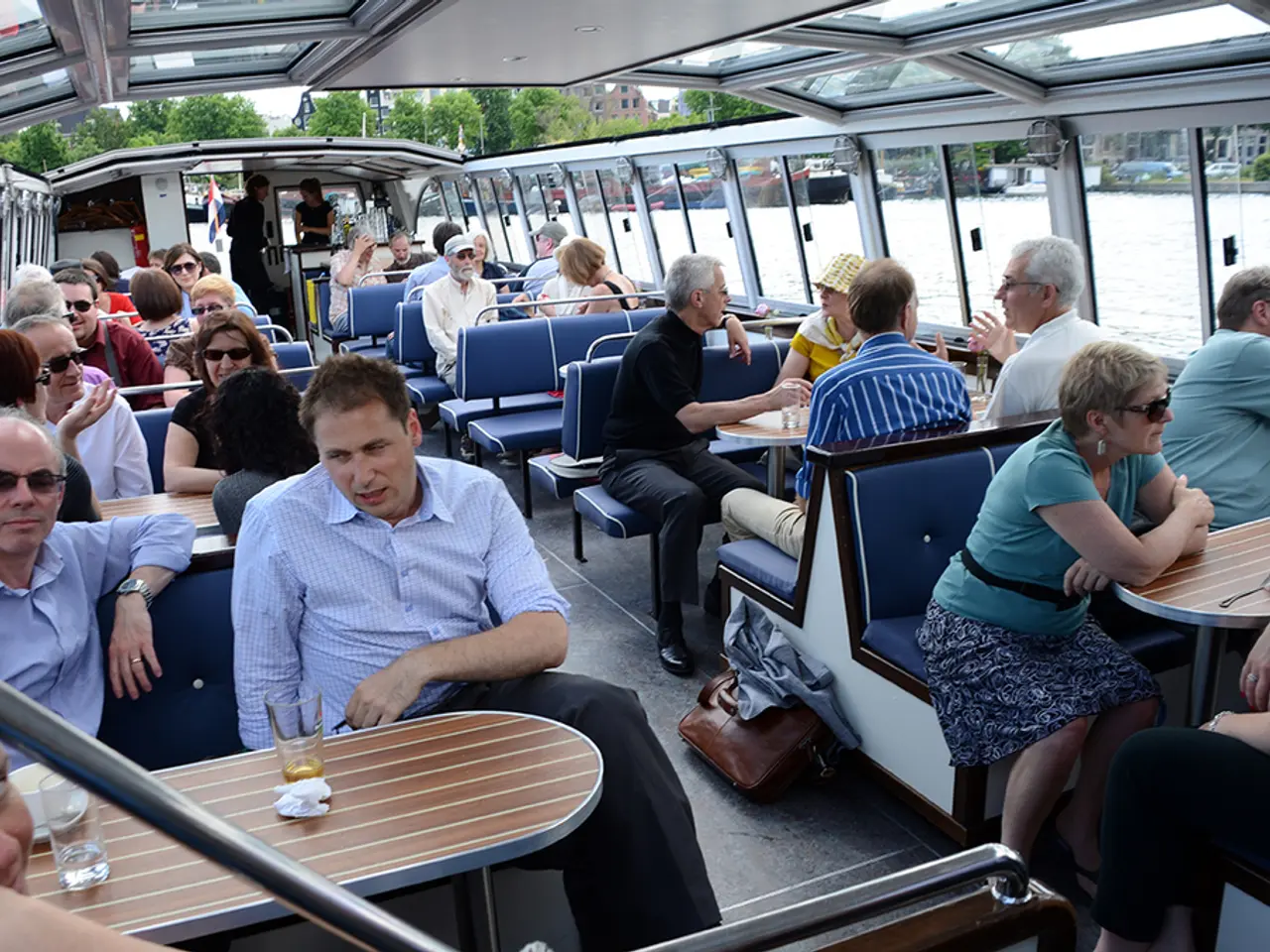Networking Event Kicks Off on Aft Deck, Span Reaches Entire Baltic Sea Region
Hanse Sail Embraces Sustainability Initiatives for a Greener Future
The Hanse Sail, a major maritime event held in Warnemünde, is making strides towards a more sustainable future. This year, the event is participating in an initiative towards a "plastic-free city," reflecting efforts to reduce plastic waste and promote sustainability during the event.
Mila Zarkh, sustainability manager of the Rostock Tourism Center, discussed reducing the pressure to print products at the Hanse Sail. Meanwhile, Lukas von Schuckmann, specialist advisor of the Green Events Seal, presented pilot projects this year, including doubling the number of bicycle parking spaces and installing dry toilets at Kröpeliner Tor.
The Hanse Sail offers ideal conditions to test new sustainable approaches on a large scale. For instance, Wismar University developed a pilot waste management system for the Hanse Sail, using simple attachments and distinct symbols to clearly mark waste bins for plastic, general waste, or paper.
The Achterdeck-Areal, operated by the KuBuS association since 2021, focuses on sustainability, environmental education, accessibility, and fun for all. It is a key actor and advisor in the sustainability concept for the Hanse Sail and is part of the EU project STRIVE.
The Hanse Sail is not just a cultural event, but also a significant driver of tourism, a community meeting point, and a creative laboratory. The event's sustainability strategy includes a focus on inclusion, both in terms of accessibility and socio-economic considerations. A child-friendly brochure mapping out the Hanse Sail schedule is the only print product remaining, aimed at financially weaker families and those who want to consume less.
Samuel Drews, the main initiator of the "Plastic-free City Rostock" initiative, emphasized that events like the Hanse Sail can set a good example for sustainability. The Hanse Sail's sustainability efforts are being watched as a potential blueprint or model for how to approach sustainability at other major events across the Baltic Sea region.
The Hanse Sail's strategic session, held at the Achterdeck-Areal, welcomed representatives from administration and politics, non-profit organizations, and the EU project "Strive" for a joint session, exchange of experiences, and a joint sailing tour. The goal of the participants is to make the Hanse Sail and major events in the Baltic Sea region future-proof and sustainable.
While the Hanse Sail, like other major events, has a poor ecological footprint and faces challenges in managing waste, resource consumption, and socio-economic aspects sustainably, the event's commitment to sustainability is a promising step towards a greener future for large-scale events in the Baltic Sea region. The dry toilets at Kröpeliner Tor, for example, are ecologically friendly, using no chemicals and not emitting odors.
Mathis Schreier from Wismar University presented the user-friendly waste management system to international guests, who might adopt it for their own festivals and events in the Baltic Sea region. The Hanse Sail is not just a laboratory for innovative ideas, but also a platform for exchange, as demonstrated by the Achterdeck-Areal's role in the event's sustainability strategy.
- The Hanse Sail, with its focus on sustainability, is not only a major maritime event, but also a significant contributor to environmental-science and sustainable-living, as demonstrated by its participation in the "plastic-free city" initiative and the introduction of eco-friendly dry toilets.
- As the Hanse Sail aims to be a model for sustainability at other major events across the Baltic Sea region, the event's commitment to home-and-garden principles, such as the user-friendly waste management system and efforts to reduce print products, can help influence lifestyle changes towards a greener future.
- The scientific approach to environmental problems, such as climate-change, is showcased at the Hanse Sail through initiatives like the STRIVE project, which focuses on making major events in the Baltic Sea region future-proof and sustainable, thereby promoting a greener lifestyle in the region.





